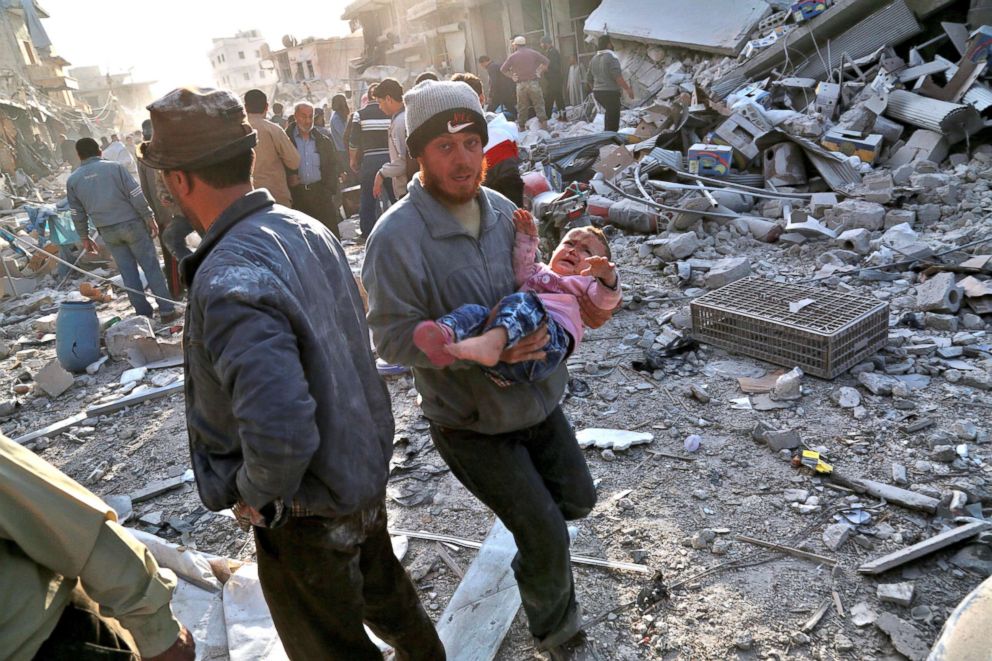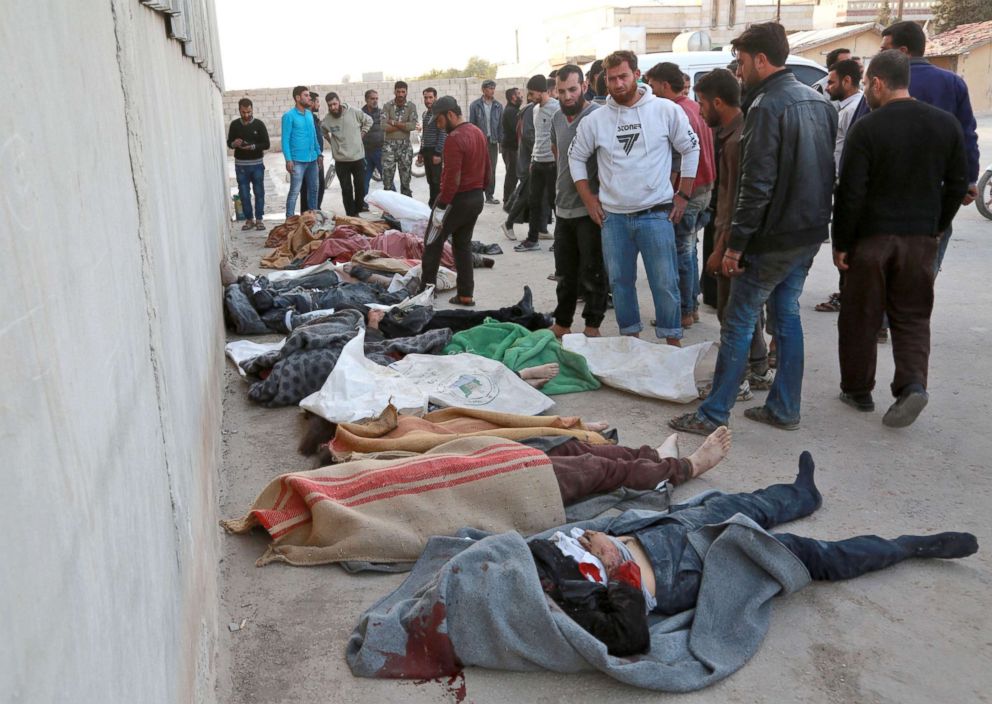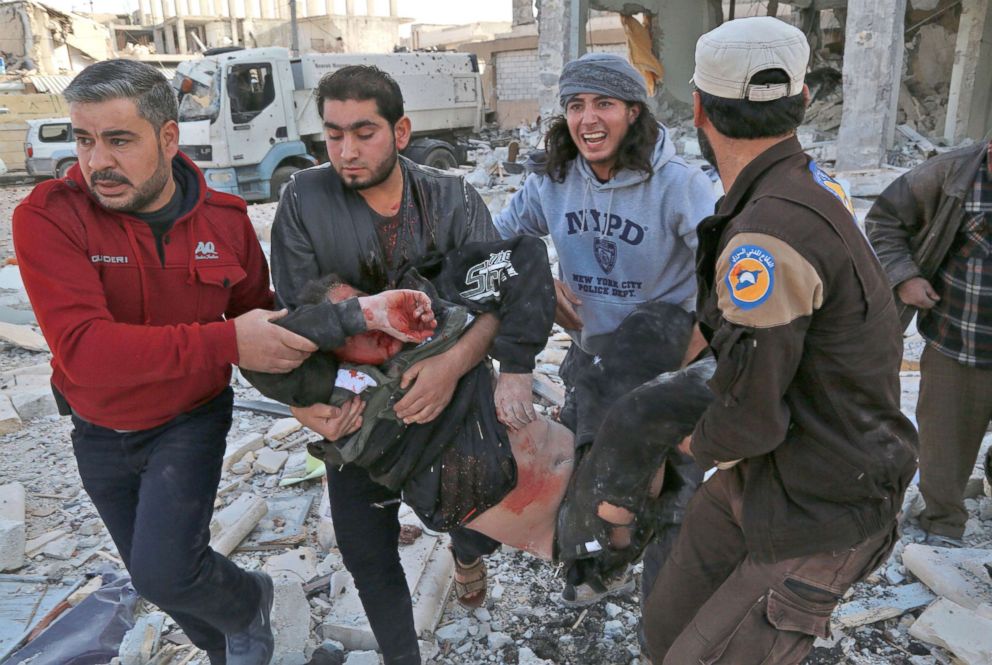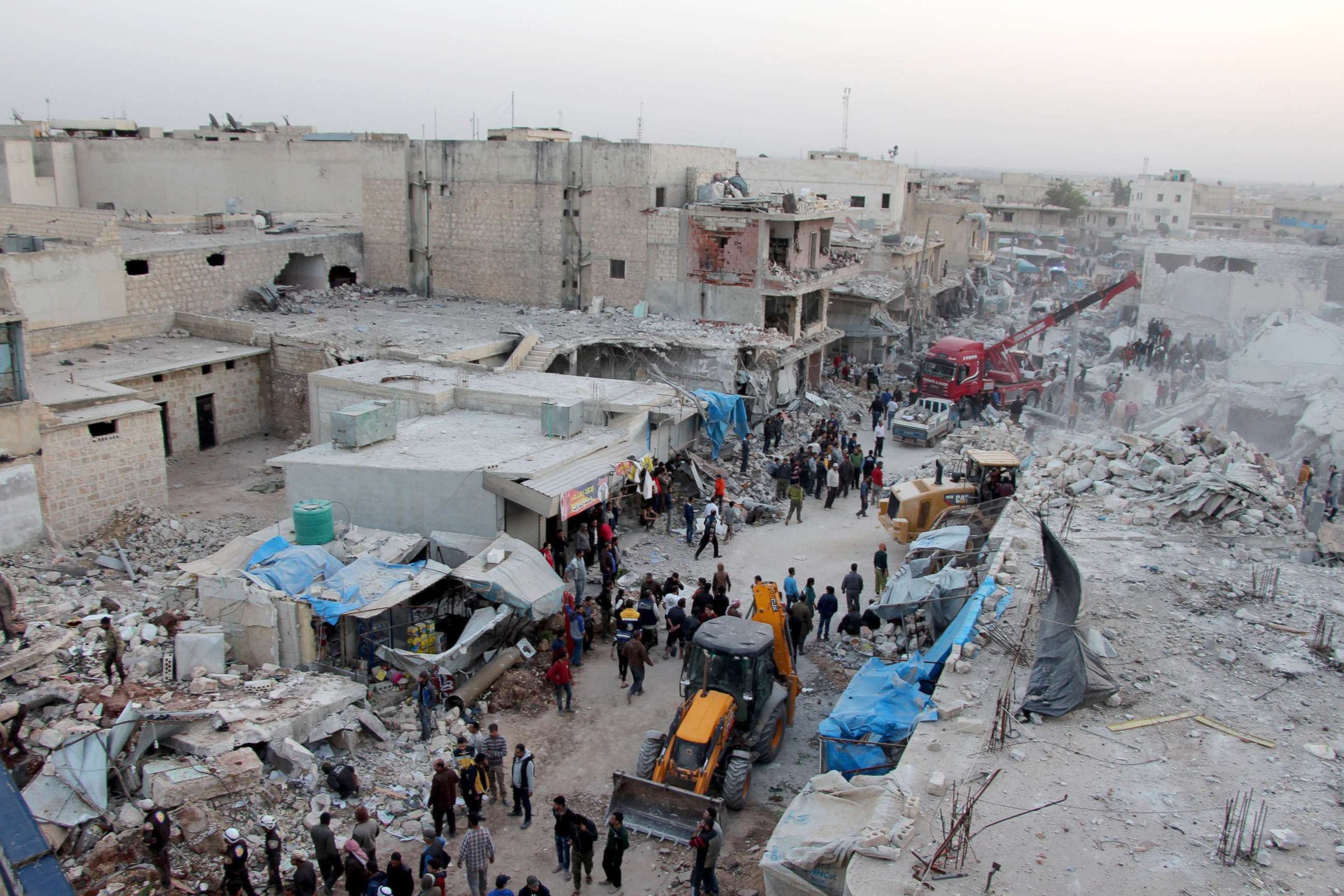Russia may have committed war crime in Syria: UN investigators
UN investigators looked into an airstrike that killed at least 84 people.
It was a devastating airstrike that killed at least 84 people, including five children, shopping at a crowded local market, at a police station, and at family homes nearby. But now, a United Nations panel has determined it was more than a bloody day in a suburb of Syria's once-largest city Aleppo: it may have been a war crime.
After seven years of barrel bombs and chemical weapons attacks, torture and executions, there have been plenty of war crimes in Syria. What makes this one different is that the U.N. is pointing the finger at Russia for the first time.
A new U.N. report published Tuesday determined that on Nov. 13, 2017, a Russian aircraft used "unguided bombs, including blast weapons, in a densely civilian populated area," which "may amount to the war crime of launching indiscriminate attacks resulting in death and injury to civilians."
But the U.N. also faults the U.S.-led Global Coalition to Defeat ISIS for bombing a school that had been used for years as a shelter for Syrians fleeing the conflict - a "violation of international humanitarian law."

Russia has not yet responded to the report, which relied on interviews with witnesses who survived the attack as well as photographic and video evidence. The bombs damaged or destroyed an area of approximately 5,000 square meters, or nearly 54,000 square feet, according to satellite imagery that the panel reviewed.
The primary target appears to have been the police station, which was destroyed in the bombing, killing 13 officers and six detainees inside. But the U.N. panel determined that the police station was not a "lawful military" target because it was used for civilian purposes, including traffic police, and none of its officers were actively part of the conflict.

In fact, the whole area was part of a "de-escalation" zone that Russia, Iran, and Turkey had created as part of their Syria peace talks, known as the Astana process. Implemented in September, that agreement was supposed to stop the fighting in this area and others around Syria.
But there were reports of in-fighting in this town and others between two opposition groups. Al Qaeda's affiliate in Syria, Hay’at Tahrir al-Sham, was competing with an Islamist group called Nour al-Din al-Zinki for control in western Aleppo. The U.N. panel said it had conflicting reports about a possible military target, but many of the local residents told the panel that the local council had pushed all armed groups out of the town, called Atarib.

Either way, the U.N. determined that Russia used unguided blast weapons that often miss their targets and have a wider range of devastation. "Using such weapons in a densely civilian populated area was certain to impact civilians," the report said.
Despite the allegation, Russia seems unlikely to face any repercussions from the international body. It has armed and aided the Syrian regime of Bashar al Assad for years now, and even after the unrelenting assault on eastern Ghouta, a rebel enclave outside Damascus, the two have only faced a chorus of condemnation, but no penalties.
For years, activists have been collecting evidence of Assad's atrocities to build a case against him eventually at the International Criminal Court at the Hague, but it's unclear if Russia would be held responsible, too.

The U.N. also faults the U.S.-led coalition to defeat ISIS for another bombing that killed 150 people at a school in ISIS territory in March 2017. More than 200 displaced people had been living in this school in ISIS's self-declared capital Raqqa since 2012, according to the report.
At the time, the coalition's Combined Joint Task Force took responsibility for the strike, but said that it was targeting 30 ISIS fighters and that they had no information about displaced persons living there.
But according to interviews with survivors and other evidence collected by the U.N., there were no ISIS fighters, and given the school's history as a shelter, the coalition should have known there were civilians there.
The coalition "failed to take all feasible precautions to avoid or minimize incidental loss of civilian life, injury to civilians and damage to civilian objects, in violation of international humanitarian law," the U.N. determined.




